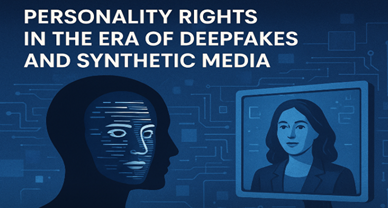Copyright Registration in India
In the world of intellectual property, copyright is an important means of protecting original works of authors. For writers, artists, musicians and other creators in India, knowing how to register their copyrights can be a valuable asset. This guide explores the process, benefits, and key points about copyright registration in India.
Abstract
This blog provides complete information to go about the registration for copyright in a systematic manner with due incorporation of all steps required to help creators of the works of art. It server the purpose of establishing the entire information as to the importance of copyright protection. All the details regarding proof of creative efforts in writing, musical or cinematographic books, novels, poems, dramas, lectures, news-papers and similar registered periodicals are provided to give detailed information to go about the procedure. Creators of Art can have complete knowledge about Indian copyright law to ultimately break the code of registration. At times copyright registration is a systematic process which again can be accomplished by sticking to the stepwise application procedure using the modern technological approach which necessitate and what-so-ever is dynamically walled off for creators, writers, musicians, film or movie makers to secure their intellectual property without an error. If creators really wish to ensure the protection of their intellectual rights, they can gain enormous amount of knowledge by regularly studying the Indian copyright law techniques. In the light of the foregoing, there seems an apt statement necessitating creators to get it completely researched with a useful shift in perspective so as to offer a Note on Copyright concentrating on the registration aspects without any ambiguity.
What is Copyright?
It is a legal right that belongs to the originators of genuine artworks like literature, drama and music works, cinematographic films as well as sound records. This gives an artist exclusive rights for use, distribution or licensing the creation thus prohibiting others from abusing it without permission.
Why Should One Register Copyright?
While copyright protection in India is automatic upon the creation of an original work, registration offers additional benefits:
Public Record: Registration creates a public record of copyright which becomes vital during legal disputes.
Prima Facie Evidence: As per Section 48[1] of the Copyright Act, the registration certificate is considered prima facie evidence in court thereby simplifying litigation process for infringement cases.
Economic Benefits: Registered copyright can enhance commercial value of the work thus making it easier to license, assign and sell.
Licensing Right – Copyright owners have the authority to grant licenses for their works. Registering copyrights let’s others identify easily who owns my intellectual property, giving them clear confirmation that they are licensing from the true owner. In this way, one must register his or her works so as to effectively manage and exploit own works.
Is registering Copyright work really mandatory in India?
In India, copyright protection automatically exists by the mere act of creating a work hence no need for registration of the work to enforce copyright or seek legal redress when infringed.

Such principles emanate from international conventions like the Berne Convention for the Protection of Literary and Artistic Works (1886) and Agreement on Trade-Related Aspects of Intellectual Property Rights (TRIPS) which have been ratified by India. Copyright protection under these agreements arises immediately when a work is created. Registration may be done under Section 45(1) of the Copyright Act although it is optional. This means that authors can choose whether or not to file a copyright application based on this provision since its language interprets ‘may’ as a sign that authors can decide wherever they want to pursue registration under this section.
According to the law, copyright protection begins upon creation and it is possible for creators to register their works if they wish to do so, but it is not compulsory.
How to Protect Your Creative Work Through Copyright
Filing a copyright application is an essential step for creators to legally protect their original work—whether it’s a book, song, software, or artwork. The process involves submitting a copyright registration form, paying a fee, and providing a copy of the work to the relevant copyright office. By registering, the creator gains the exclusive legal right to reproduce, distribute, and license the work.
Applying for copyright protection is recommended as it strengthens enforcement rights, especially in legal disputes. While copyright is automatically granted upon creation in many jurisdictions, registration solidifies ownership and helps prevent infringement.
Whether you’re submitting a copyright registration for a novel or a digital design, ensure the work is original and properly documented. Understanding the process of a copyright filing can save creators time and stress down the line.
Protect your creative output—register your work and secure your intellectual property rights.
India: Registration of Copyright in Five Simple Steps
- Preparation: Collect all necessary information about the work such as its title, description, and author’s particulars. It should be original and it must pass the test of originality under the Copyright Act, that is, it should not be a copy from any other source and have a small amount of creative skill.
- Application Submission: To apply for copyright protection you have to file an application in FORM IV with the registrar along with fees as provided for in schedule 2 of the act. Every application relates to individual work only. The government has outlined its charges for various works at their official website: http://copyright.gov.in/frmFeeDetailsShow.aspx.
The application can either be made online through Copyright Office’s official website (https://copyright.gov.in) or physically. Choosing between electronic filing or traditional paper filing for registration is important decision making process; here is a comparison to assist you make a better choice: Online registration offers efficiency and speed. You can access the official website, input your details, upload required documents, and make payments. This can be done from anywhere saving time and travel expenses. On the other hand, offline copyright registration will involve filling hard copy forms, attaching the necessary documents and thereafter posting or delivering them to the copyright office. This is slower since it involves manual handling as well as delivery time which could increase costs in terms of travel or postage.
A Vakalatnama or Power of Attorney must be executed in favor of an Advocate whose signature must also appear on each application.
III. Examination: Application is scrutinized by a registrar for any discrepancies and objections and Diary No. is given to the Registrar.
If there are any discrepancies or objections regarding the application, the Copyright Office may issue a notice seeking clarification or additional documents. The applicant needs to respond to any objections.
- Publication: The details of the application are published in the official journal. There is a mandatory waiting period of 30 days from the date of publication during which interested parties can raise objections to the registration of the copyright. If objections are raised, parties shall be notified by examiner for hearing purposes whereupon they will resolve their issues before examination by an examiner. After resolution of these objections, an arbitrator examines this application and either grants approval or rejects it appropriately.
- REGISTRATION: When objections are cleared and the work is original, a registration certificate is issued by the Copyright Office. Copyright in India lasts for life of the author plus 60 years after his or her demise.
Required Documents for Registration
Personal Details: Applicant’s details along with those of author.
Nature of the Work: This includes a description of the work, its nature and other details.
Copies of the Work: A copy or samples of what should be registered.
No Objection Certificate (NOC): If applicable, an NOC from the author if applicant differs from him/her.
Power of Attorney: If the application is submitted by an attorney on behalf of the applicant.
Common Myths and Misconceptions
Automatic Protection: While copyright is automatic, there are real benefits to registering it.
Global Protection: Although registration in India does not necessarily provide worldwide protection; international treaties like Berne Convention confer some degree of international recognition.
Copyright registration in India is an important step that creators must take to protect their works from infringement. The procedure demands meticulousness and clear comprehension about them brought out sequentially Creators can use copyrights not only to safeguard their intellectual property but also to exploit it economically: this is the most significant way of making sure that creative work receives recognition and reward.
Author:–Shashank Singh, in case of any queries please contact/write back to us at support@ipandlegalfilings.com or IP & Legal Filing.
REFERENCES
- Copyright Act, 1957 (India) – [Copyright Act, 1957] (https://indiankanoon.org/doc/1220202/)
- Berne Convention for the Protection of Literary and Artistic Works (1886) [Berne Convention Text] (https://www.wipo.int/treaties/en/text.jsp?file_id=283698)
- Agreement on Trade-Related Aspects of Intellectual Property Rights (TRIPS) [TRIPS Agreement](https://www.wto.org/english/tratop_e/trips_e/t_agm0_e.htm)
- Official website of the Copyright Office, India at [Copyright Office, India](https://copyright.gov.in/).
- Refer to Section 48 of the Copyright Act [Section 48, Copyright Act](https://indiankanoon.org/doc/654467/).
- The FAQs at [FAQs on Copyright](https://copyright.gov.in/frmFAQ.aspx).
- https://www.ipandlegalfilings.com/services/copyright-services/
[1] Section 48 of the Copyright Act, 1957


